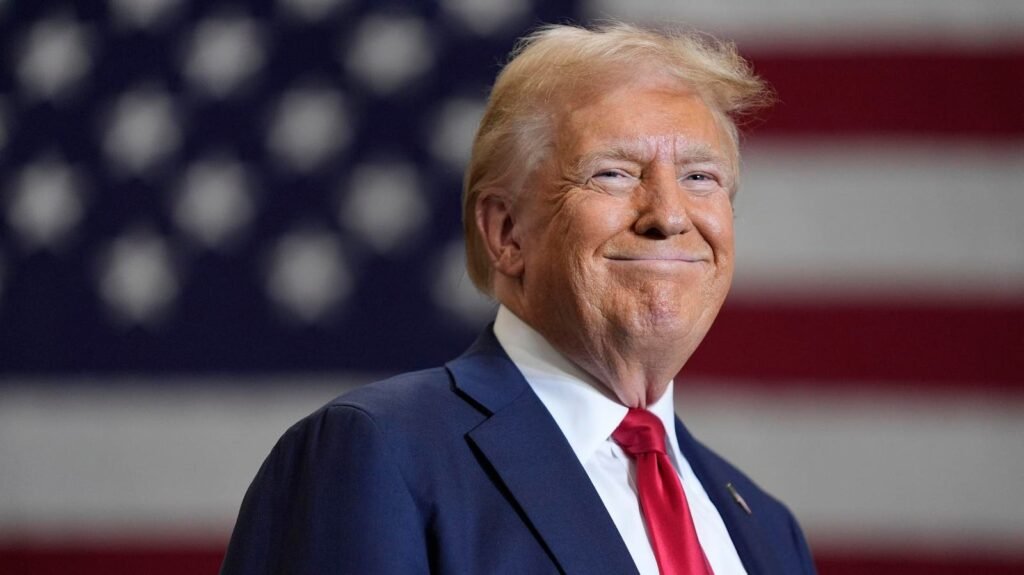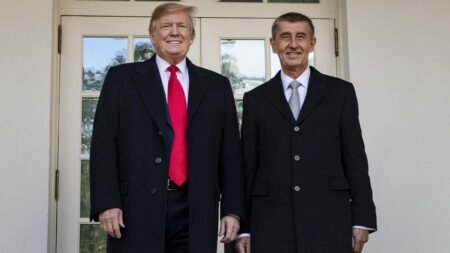Topline
Former President Donald Trump’s projected win will get him out of at least some of his criminal charges, as his ascension to the White House makes it all but certain the two pending federal criminal cases against him will be dropped—with the Justice Department possibly ending the cases even before his inauguration—though Trump will likely only be able to delay his two cases in state court.
Key Facts
Trump faces four pending criminal cases against him, including federal charges for trying to overturn the 2020 election and allegedly withholding White House documents, a conviction in New York state court for falsifying business records and state charges in Georgia for trying to overturn the 2020 election.
Federal Election Case: Trump’s federal charges for trying to overturn the 2020 election, which have not yet gone to trial, are virtually certain to get dropped once he takes office in January, as Trump has promised to fire Special Counsel Jack Smith—who’s leading the investigation—“within two seconds” and can appoint officials to the Justice Department who will drop the charges against him.
Federal Documents Case: While Smith is currently trying to appeal Trump’s documents charges after Trump-appointed U.S. District Judge Aileen Cannon dismissed them, Trump’s election ensures the government will drop that appeal when he takes office and the charges will go away.
It’s also likely the federal cases will go away sooner, as NBC News and CNN, citing anonymous sources, report the Justice Department is discussing how to “wind down” the cases against Trump before he takes office, with Smith in “active talks” with DOJ leadership on how to end the prosecutions.
New York Conviction: Trump cannot pardon himself on the 34 felony counts he’s already been convicted on in New York or have the case dropped—since as president he won’t have any control over state charges—but his election is very likely to delay his sentencing, now scheduled for Nov. 26, or at least ensure he would not have to serve any sentence until after he leaves office.
Georgia Election Case: Trump’s Georgia charges are already on hold while an appeals court decides whether to disqualify Fulton County District Attorney Fani Willis from the case, but even if Willis stays on, Trump’s lawyers will almost certainly try to delay proceedings until after Trump leaves office, meaning Willis would not be able to prosecute him until 2029.
What To Watch For
Judge Juan Merchan, who oversees Trump’s New York case, is scheduled to rule Nov. 12 on whether the charges against Trump will stand, as the ex-president has asked him to throw out the charges based on the Supreme Court’s ruling giving former presidents some immunity from criminal charges. That ruling will give the first indication of how Trump’s criminal conviction in New York could play out from here now that Trump’s been elected.
What About Trump’s Civil Cases And Legal Fees?
In addition to the four criminal cases against him, Trump also has a number of civil cases that are still pending, including appeals of writer E. Jean Carroll’s two defamation cases against him and the civil fraud case against Trump and his company. Those cases resulted in multimillion-dollar legal judgments against Trump, who has been ordered to pay more than $90 million including interest in the two Carroll cases and more than $478 million and counting in the fraud case. Those cases and fees will not be affected by his election, as while presidents can’t be held liable for actions they take while in office, the Supreme Court ruled in Clinton v. Jones that presidents can be sued in civil court for actions taken before they were president. Trump’s victory “does nothing to change either the fact, as determined by two separate juries, that he sexually assaulted and defamed Ms. Carroll, or the applicable legal principles under which he was held liable for that conduct,” Carroll’s attorney Roberta Kaplan said Wednesday, as quoted by the New York Daily News. Appeals courts heard oral arguments in the fraud case and one of the Carroll cases in September, with rulings expected sometime over the next few months.
Can Trump Fire Jack Smith?
While Trump has vowed to immediately fire Smith when he takes office, technically that’s not up to him, as only the attorney general can hire and fire special counsels—who are themselves meant to be third parties that can ensure a more independent investigation. That being said, Trump is certain to name an attorney general who would be willing to do his bidding on the matter and fire Smith. It’s also unclear what repercussions Trump could face if he were to forgo the legal process and try to get rid of Smith himself, as the Supreme Court has given him broad leeway to avoid both criminal and civil legal challenges based on his actions in office.
Key Background
Trump is the first sitting or former president to be indicted on criminal charges. The ex-president likely being able to avoid most of his criminal counts comes after Trump and his lawyers successfully delayed the cases against him for months, indefinitely postponing trials in his federal cases that were initially scheduled to take place last spring. Trump’s federal election case got postponed while the ex-president appealed his presidential immunity claims all the way up to the Supreme Court, also filing a flurry of motions in his federal documents case that allowed Cannon to delay the proceedings before she ultimately dismissed the charges. While Trump’s case in New York did go to trial, his lawyers successfully postponed his sentencing, which was originally supposed to happen in July. Merchan in September agreed to delay the sentencing until after the election, ruling he wanted to avoid any perception that his sentence would be impacted by political bias.
Tangent
Judge Cannon, whom legal experts have criticized, claiming she’s been overly deferential to Trump, could become a part of the next Trump administration, as ABC News reported before the election the Trump-appointed judge was on his shortlist for attorney general.
Read the full article here

















